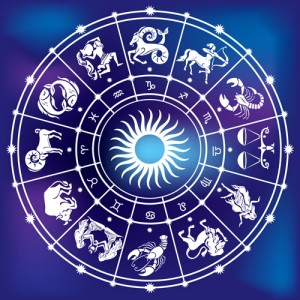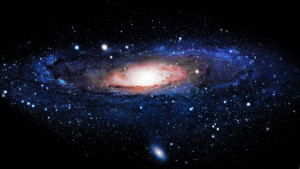For the past few years, I have been a person that regularly checks my “Daily Horoscope App” for a fun little activity within my day. I never put a lot of stock in their sayings, however my best friend is an avid horoscope reader and believer. She likes how they can “predict” the happenings of her day and have been a fun source of information for her when she is curious about why something is happening. My best friend Andrea and I have the same birthday, so we by default have the same astrology sign, so naturally we have compared our days with the horoscopes we receive and we have realized that usually they apply to one of us more than the other depending on the day, or are so general that we try and fit the app’s predictions to correlate with what is currently happening in our lives. This inconsistency prompted me to consider whether or not astrology had any scientific backing, or if it was just something made up.
Pedro Braganca, a write for the website Livescience makes the clarification that “The science behind astrology may have its roots in astronomy but don’t confuse these two disciplines”(Braganca). Braganca goes on to explain how the “position of the stars in the sky”(Braganca), is the representation of astronomy, but the “determination of their alignment” (Braganca) and how a person perceives the significance of their alignment does not have any backing in science or actual astronomy. The interpretation of the alignment is how astrology is defined and where our horoscopes come from. One gets his or her “sign” from where the sun aligns with a particular constellation on the day of their birth according to Braganca. However, the characteristics that are associated with a person’s personality and characteristics that people usually attribute to a specific sign are not proven by astrology, they are simply interpretations that have been repeated over time and are now associated and descriptions of a person based on when they were born and which sign they fall into.
The University of California, Berkeley developed a worksheet for students to go though and determine whether or not astrology truly has a scientific backing or not. It begins with a basic definition of what Astrology’s “basic premise” is, and states that is is based on the understanding that “heavenly bodies — the sun, moon, planets, and constellations — have influence over or are correlated with earthly events”(Berkeley). It then forces one to try and understand or justify how these “heavenly bodies” are able to predict, foreshadow, and foretell events that will happen in the future though a scientific explanation. The worksheet then addresses one of the main criticisms of astrology, the ability of one’s horoscope to he so “generalized” and vaguely worded that it could have many multiple meanings and be made to fit any person’s daily life (Berkeley).This aspect of astrology makes it almost impossible to test if astrology truly can accurately predict anything since people manipulate their horoscopes to fit their situation. Minimal tests have been executed, but Berkeley details that “In the few cases where astrology has been used to generate testable expectations and the results were examined in a careful study, the evidence did not support the validity of astrological ideas” (Berkeley). Due to the lack of supporting evidence, inability to do a large amount of tests, and variety of interpretations, it is hard to place scientific backing in the validity of astrology.
Despite these last two strong stances in opposition to the factuality of astrology as a science, the online website astrologer, is dedicated to informing people about the truth and science behind one’s horoscope and zodiac sign. It details that astrology is unique and displays “problems being tested using the scientific method” for reasons such as “its difficulty to obtain accurate objective data, isolating the huge number of variables, replicating each person’s unique conditions, and lack of hard statistics” (Astrologer.com). They claim that these shortcomings make it difficult to perform sufficient tests and conclude accurate evidence, which allows scientists to dismiss its value. Thus, leaving people to only see the “flawed tests and experiments” conducted in the past, which does not allow the public to understand that one can truly put stock in their horoscope and look to it as a form of guidance from the “heavenly bodies”.
In conclusion, despite the complaints of those who believe that astrology has true meaning and scientific backing, I find it hard to dismiss astrology’s inability to be proven through the scientific method and lack of legitimate testing. Astronomy is a true science that explains the placement of everything in our solar system and alignment of planets, stars, and constellations; however it does not explain the implications or interpretations one gathers from the alignment or placement of the “heavenly bodies”. Due to this important distinction I find it almost impossible for astrology to truly be a science and be able to honestly predict events or a person’s characteristics.
Works Cited:
Astrology: Is it scientific? (n.d.). Retrieved November 15, 2015, from http://undsci.berkeley.edu/article/astrology_checklist
Braganca, P. (2007, October 23). Astrology: Why Your Zodiac Sign and Horoscope Are Wrong. Retrieved November 15, 2015, from http://www.livescience.com/4667-astrological-sign.html
Why it is unacceptable to dismiss astrology as rubbish. (n.d.). Retrieved November 15, 2015, from http://www.astrologer.com/tests/basisofastrology.htm


